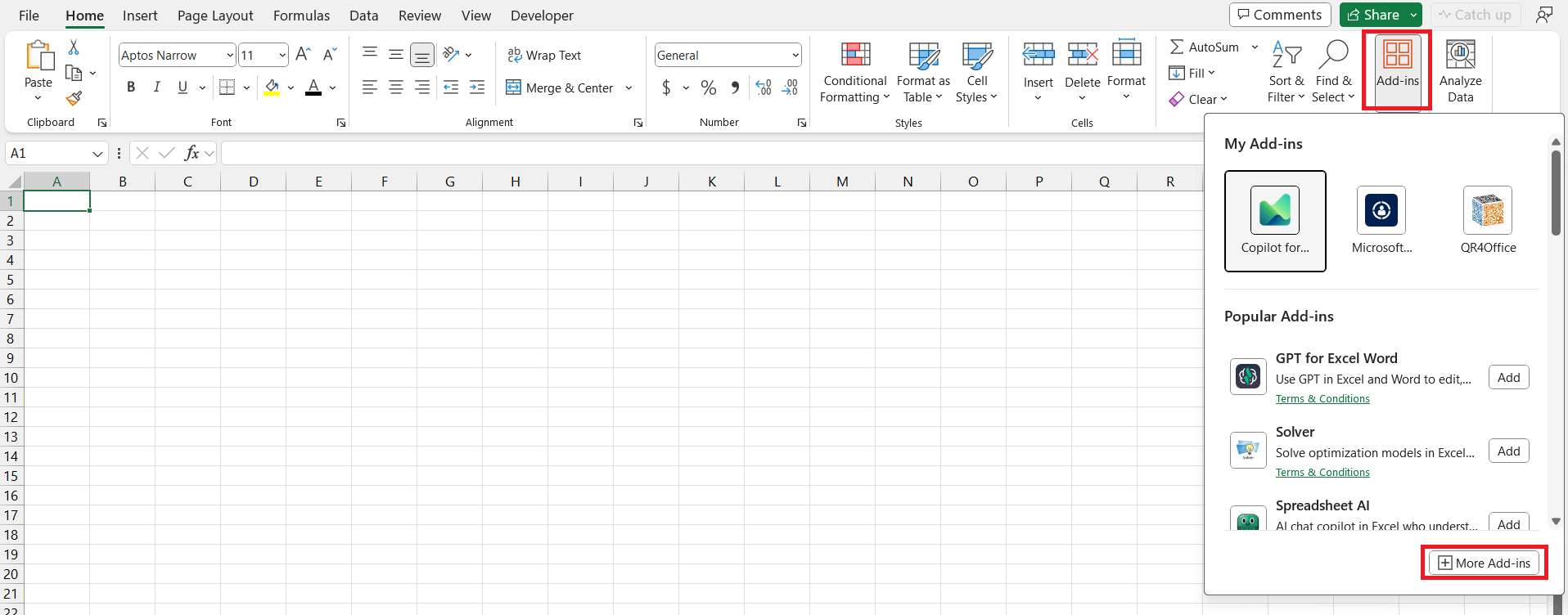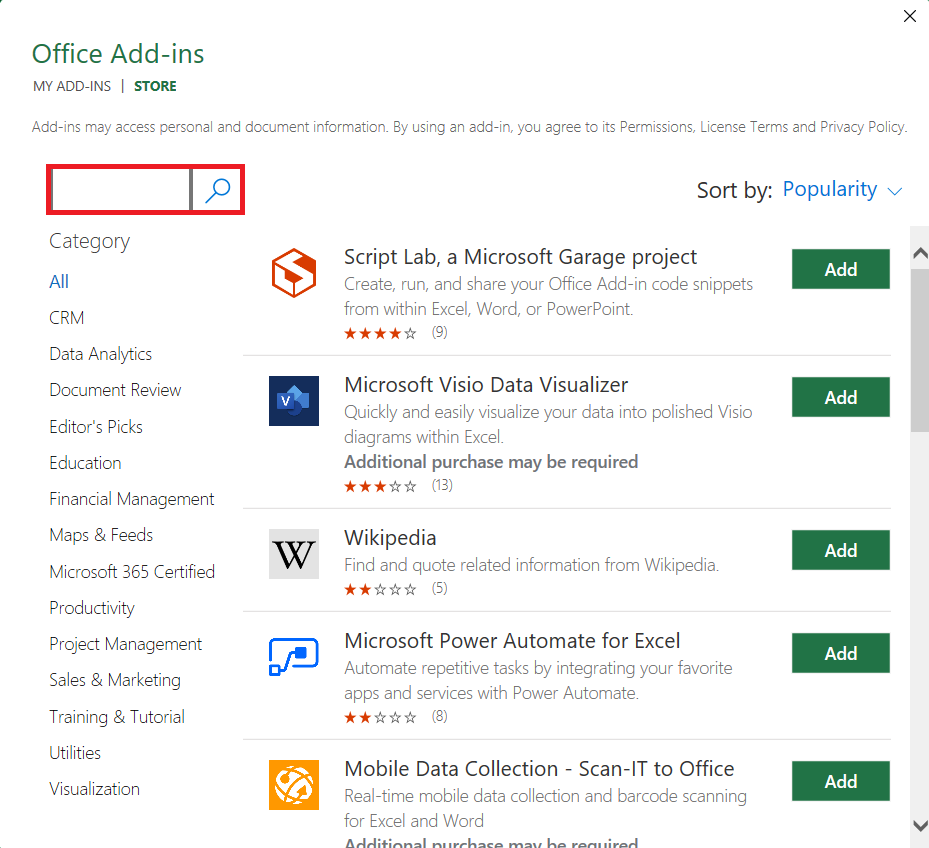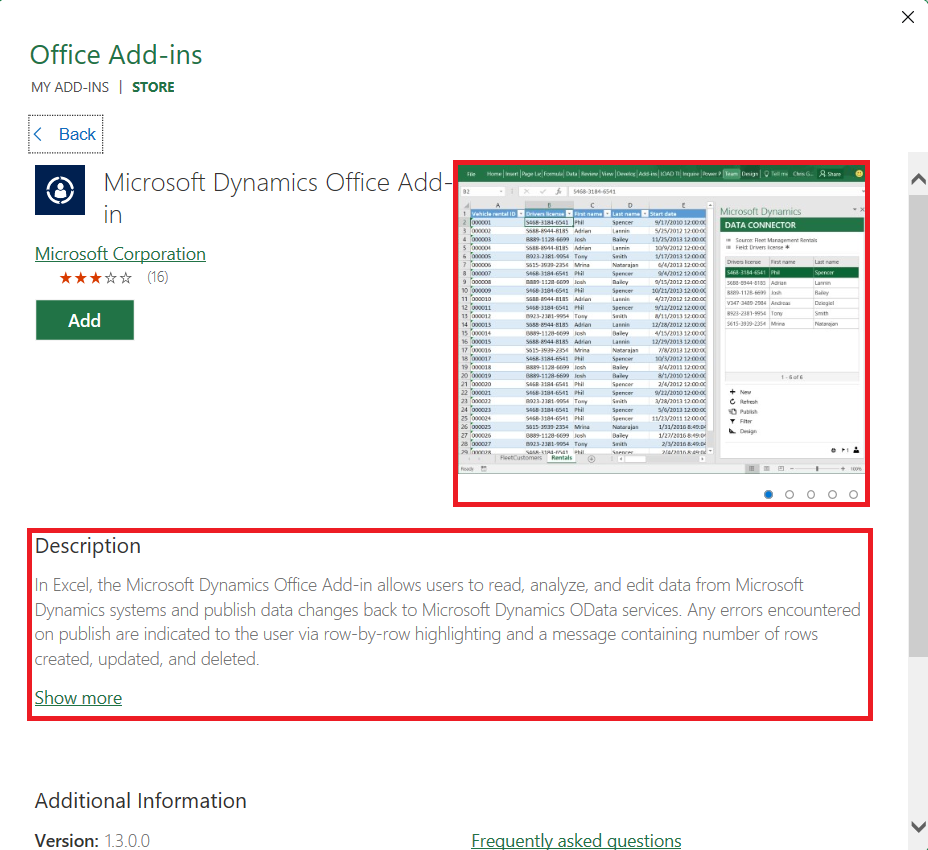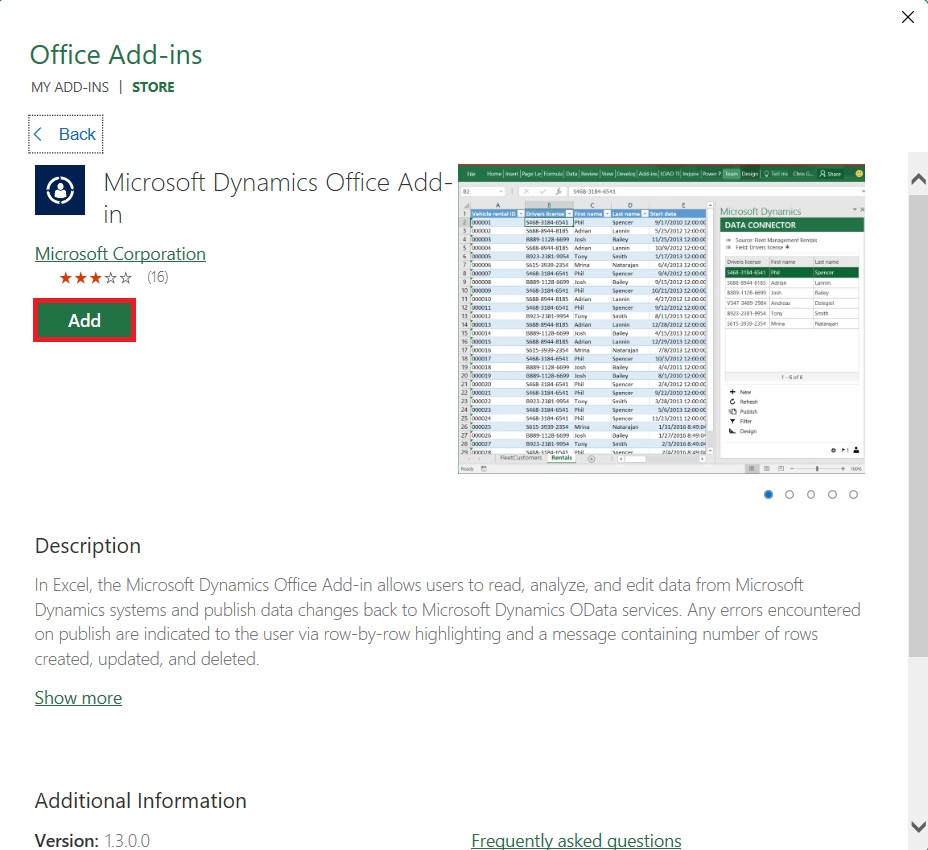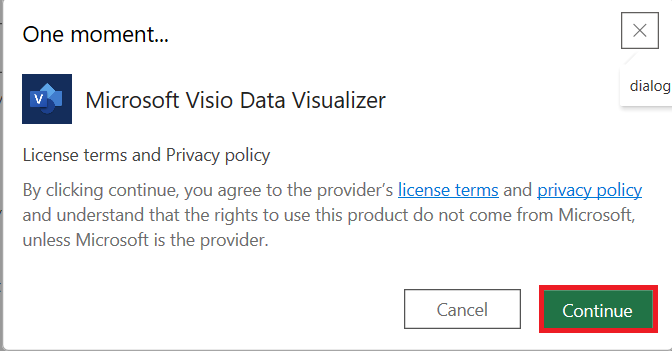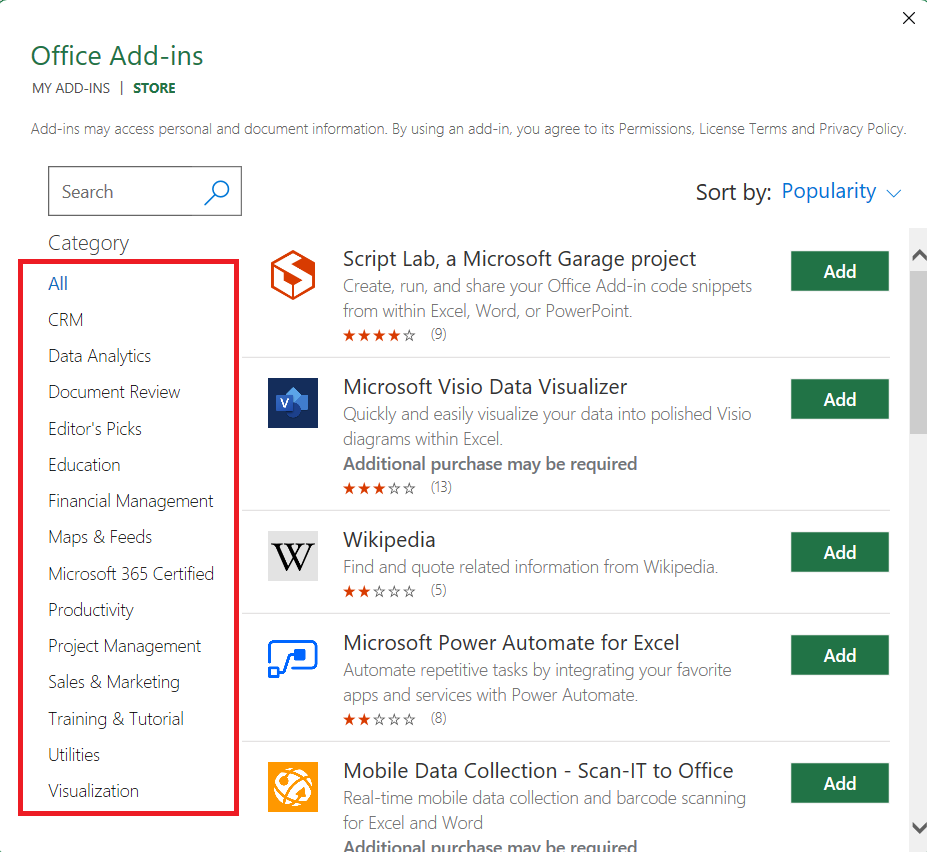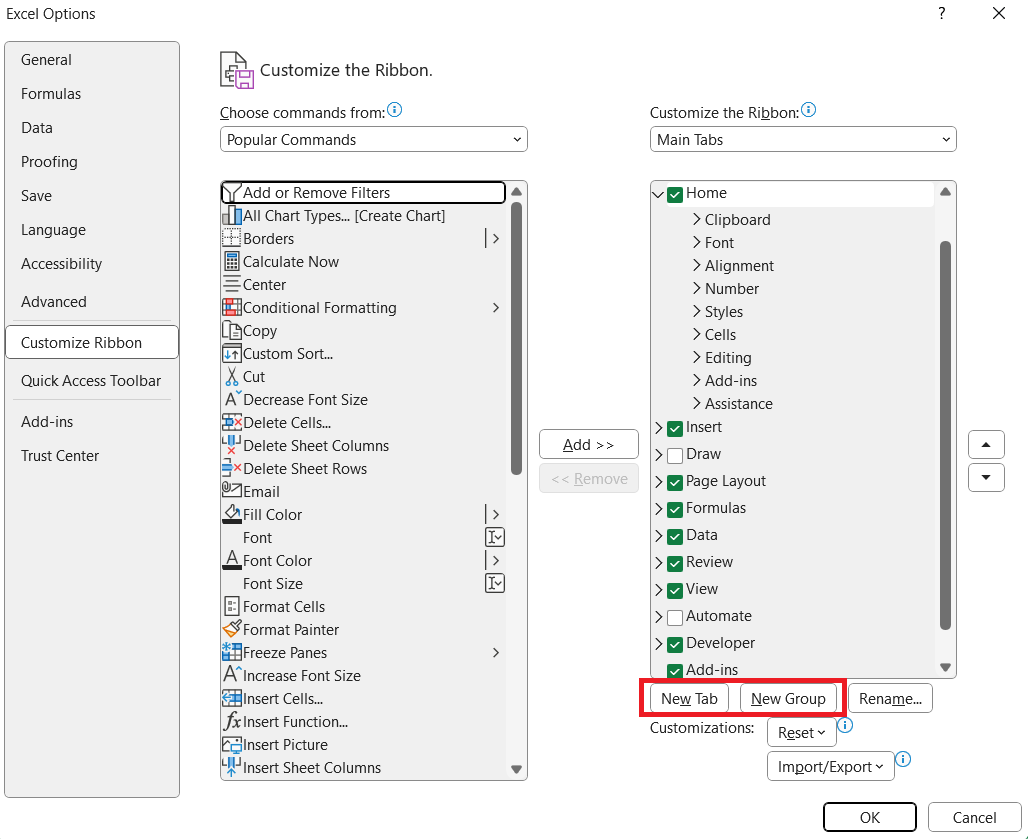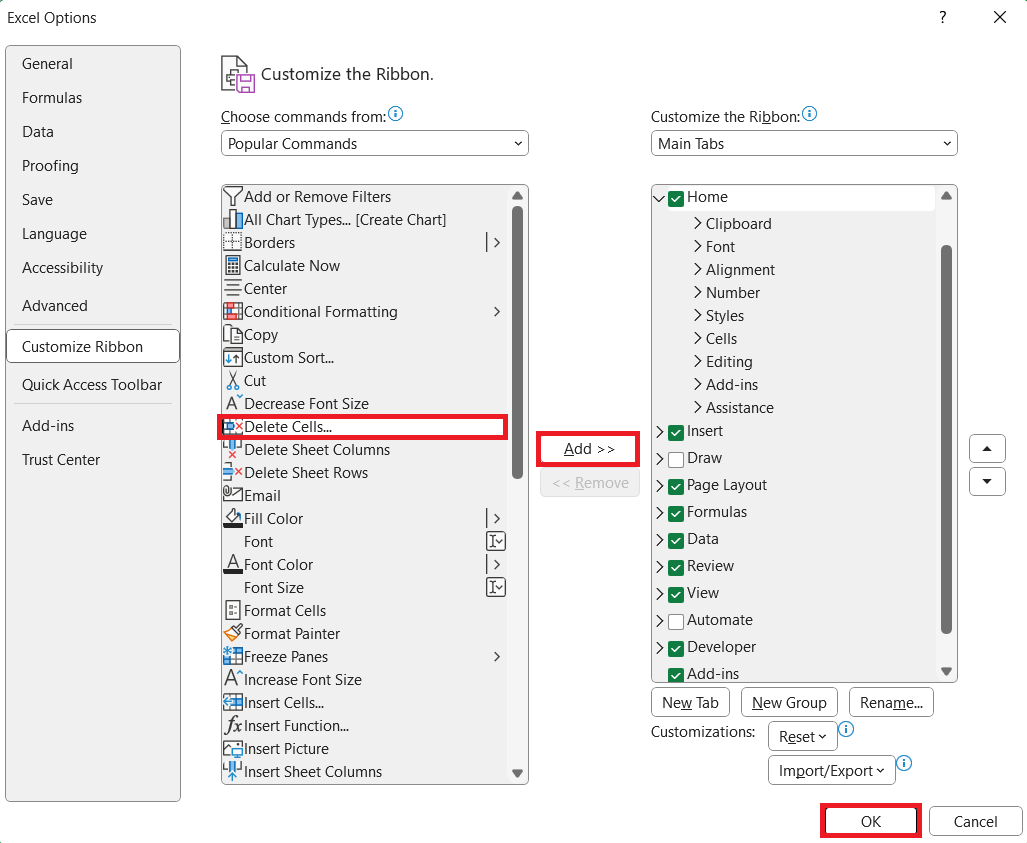Addins in Excel revolutionize how we interact with data, enabling enhanced functionalities and smoother workflows right within our spreadsheets. These extensions, ranging from simple formatting tools to complex analytical engines, empower users to elevate their data analysis, automate tasks, and present information more effectively. By integrating these tools, Microsoft Excel becomes not just a spreadsheet application but a powerful platform for data management and analysis.
Key Takeaways
- Adding add-ins to Excel is a straightforward process, accessible via the Home tab, enhancing Excel’s capabilities with just a few clicks.
- From CRM integration and data analytics to financial management and visualization, Excel add-ins cater to a wide array of needs, making them versatile tools for various professional domains.
- Utilizing dynamic formulas in add-ins ensures that data remains current, which is essential for analyses and projects that rely on up-to-the-minute information.
- Common installation issues can often be resolved by ensuring compatibility and environment readiness, ensuring a smooth add-in experience.
- Managing and customizing add-ins effectively can greatly enhance productivity, with options to update, organize, and integrate these tools into regular workflows for optimized performance.
Table of Contents
Introduction to Excel Add-ins
Adding Power to Your Spreadsheets
Excel addins are nifty tools that can take your data handling and presentation skills to the next level. They can streamline tedious processes, introduce new functionalities, and spruce up your spreadsheets, making them much more than just a grid of cells. Imagine feeling like a spreadsheet wizard, where with the flick of a wand—well, in this case, a click—you can unlock potential like never before.
What Are Excel Add-ins?
Excel add-ins are essentially software extensions that seamlessly integrate into your Excel environment, boosting its capabilities. These handy components come in various forms, from simple utility tools that can help you format data or automate repetitive tasks, to complex analytical programs that can process and visualize information in ways the standard Excel functions can’t. They’re like adding a turbocharger to your car—it’s still the vehicle you know and love, but with that extra oomph to take you where you need to go faster and more efficiently.
Installation Made Easy
How to Find and Install the Perfect Add-in
Finding and installing the perfect Excel add-in can be a breeze with these simple steps:
Step 1: Start Excel and click on the Home tab, then choose Add-ins > More Add-ins.
Step 2: Use the search box in the Office Add-ins window to hunt for a specific type of add-in, or browse through categories that catch your interest.
Step 3: Click on an add-in to learn more about it. You’ll often find screenshots, in-depth descriptions, and user reviews.
Step 4: Once you’ve selected an add-in, just hit Add, Try, or Buy to get it into your Excel toolkit. It may prompt you to sign in with your Microsoft account email and password.
Step 5: Review any privacy information or billing details if necessary, then finalize the addition by clicking Continue for free add-ins or completing the purchase process for paid ones.
Remember, these digital helpers are there to make your work easier and more productive, so take a moment to explore and select the best fit for your tasks!
Unlocking Excel’s Potential with Add-ins
Types of Add-ins and Their Functions
When delving into the world of Excel add-ins, you’ll find a colorful spectrum of types, each with unique functions to elevate your spreadsheet game. Imagine these as different spices in your culinary arsenal, each ready to flavor your Excel experience:
Here’s a brief description of each Office 365 Excel add-in category you mentioned:
- CRM: Add-ins in this category are designed to help users manage customer relationships directly within Excel, integrating CRM systems for easy access and analysis of customer data.
- Data Analytics: Tools that enhance Excel’s data analysis capabilities, offering advanced statistical methods, predictive analytics, and data visualization options.
- Document Review: These add-ins facilitate document management, including review processes, version control, and collaboration features within Excel.
- Editor’s Pick: A selection of add-ins recommended by Microsoft or the platform’s editors, usually based on usefulness, popularity, or innovative features.
- Education: Add-ins aimed at educators and students to enrich the learning experience, providing functionalities like quiz creation, educational content, and learning management system integration.
- Financial Management: Tools designed for financial tasks such as budgeting, expense tracking, financial reporting, and investment analysis directly within Excel.
- Maps & Feeds: Add-ins that allow users to integrate mapping and live data feeds into Excel, useful for geographical data visualization and real-time data updates.
- Microsoft 365 certified: Certified add-ins meet Microsoft’s standards for security, compliance, and functionality, ensuring they work seamlessly within the Microsoft 365 ecosystem, including Excel.
- Productivity: Tools that aim to enhance efficiency and streamline workflows in Excel, including shortcuts, templates, and automation features.
- Project Management: Add-ins designed to assist in managing projects, offering features like Gantt charts, project tracking, and resource allocation directly within Excel.
- Sales & Marketing: Tools tailored for sales and marketing professionals, including sales data analysis, lead tracking, and marketing campaign management.
- Training & Tutorial: Add-ins offering tutorials, tips, and guided learning paths to help users improve their Excel skills and productivity.
- Utilities: A broad category of add-ins that provide a variety of functionalities to enhance Excel’s default capabilities, ranging from data cleaning to custom function creation.
- Visualization: Tools focused on improving data visualization in Excel, offering advanced chart types, interactive dashboards, and data storytelling features.
Each add-in brings its treasure trove of utilities, whether it’s to simplify complex tasks or to present data more compellingly. From the Analyzer for heavy data lifting to the Template Collector for the visually inclined, there’s an add-in out there waiting to match your specific need.
Accessing New Features Through Add-ins
Think of Excel add-ins as a portal to a universe of features that don’t come built-in with the standard Excel package. By accessing these new features, you can:
- Enhance Functionality: With the right add-in, you open the door to powerful new functions – imagine advanced statistical analyses or interactive maps – that turn raw data into actionable insight.
- Save Time: Many add-ins tackle the brunt work of formatting and cleaning data, leaving you with more time to focus on interpretation and strategy.
- Streamline Processes: From automating common tasks to setting up complex macros, add-ins help you create a seamless workflow, turning repetitive work into a one-click affair.
- Realize Better Data Connectivity: Some add-ins enable you to connect to external databases, cloud services, or even social media for real-time data feeds.
- Enhance Collaboration: Share insights more effectively with add-ins that improve how you present, annotate, and collaborate within Excel.
By embracing these new features, you ensure that Excel grows with you, adapting to your ever-evolving data needs.
Troubleshooting Common Installation Issues
Encountering snags while installing Excel add-ins? Don’t fret—here’s how to troubleshoot some common hitches:
- Environment Preparedness: Make sure your development environment is aligned with Office add-in requirements. Check out Microsoft’s guide on setting up your environment for details.
- Compatibility Check: Ensure that your Excel version supports the JavaScript ES6 for the sample code or learn how to accommodate older versions.
- Microsoft 365 Subscription: For full feature accessibility, a Microsoft 365 subscription can be crucial. Look into the Microsoft 365 Developer Program for a possible free subscription, or consider a trial or purchase.
For more persistent issues, don’t hesitate to consult the Help section in Excel or reach out to Microsoft Support—a community of fellow users and experts eager to help you resolve your add-in installation woes.
Top Excel Add-ins to Enhance Productivity
Free vs. Paid: Which Should You Choose?
Choosing between free and paid Excel add-ins hinges on your specific needs and budget. Free add-ins can be true gems, offering substantial functionality without denting your wallet—they’re perfect for individuals or businesses just dipping their toes into the add-in pool. But, they may come with limitations in features, usage, or customer support.
On the flip side, paid add-ins bring the big guns—extensive features, dedicated support, and constant updates. They’re worth the investment if you find an add-in that becomes integral to your operations or can lead to significant time savings and improved outcomes.
In summary:
- Free add-ins: Ideal for basic enhancement and cost savings.
- Paid add-ins: Best for advanced features and ongoing support needs.
Integrating Addins in Excel into Your Workflow
Customizing the Excel Ribbon with Your Favorite Add-ins
Bringing your go-to addins into Excel’s ribbon ensures that your favorite tools are always within reach, ready to deploy. Customizing the ribbon is straightforward:
STEP 1: Right-click on the Excel ribbon and select Customize the Ribbon… to access Excel Options.
STEP 2: On the right side of the dialog box, you can create new tabs or groups within existing ones to place your add-ins.
STEP 3: Choose the add-in command from the left list and click Add to include it in your selected group.
Organizing add-ins in Excel ribbon is like setting up a personalized command center—a few well-placed tools can make all the difference in navigating through data with confidence and speed.
Tips for Managing and Organizing Your Add-ins
To maintain a smooth and efficient Excel experience, managing and organizing your add-ins is key. Here are some useful tips:
- Audit Regularly: Schedule regular check-ins to review which add-ins you actually use and remove any that are no longer needed.
- Organize Logically: Group similar add-ins together either on your ribbon or within a specific folder on your computer to make them easy to locate.
- Document Add-ins: Keep a list of your current add-ins, including their purpose and last use date—a handy way to avoid duplicates and track usefulness over time.
- Updates and Compatibility: Regularly check for updates and compatibility, especially if you’ve changed your Excel version or operating system.
- Backup Add-ins: Protect your work by backing up add-ins, particularly if they’re custom or carry significant data.
A well-managed add-in library not only optimizes Excel’s performance but also ensures that you’re working as effectively as possible.
Staying Updated with Add-in Versions
Keeping Your Add-ins Current
Having up-to-date add-ins is paramount for security and functionality:
- Automatic Updates: Enable automatic updates if your add-in supports it. This ensures you always have the latest features and security patches.
- Manual Checks: Periodically check for updates by revisiting the add-in’s page in the Office Store or the provider’s website.
- Developer Notifications: Sign up for email alerts from add-in developers to stay informed about new versions and updates.
By keeping your add-ins current, you safeguard your spreadsheets against vulnerabilities and enjoy a seamless experience with the latest tools at your disposal.
The Benefits of Regular Updates
Regularly updating your Excel add-ins is akin to keeping the engine of your car well-tuned—vital for optimal performance. Here’s what you stand to gain:
- Enhanced Security: Ward off cybersecurity threats with updated security features.
- Bug Fixes: Say goodbye to glitches that disrupt your workflow.
- New Features: Access the latest functionalities to keep your Excel skills cutting-edge.
- Compatibility: Ensure your add-ins work smoothly with the most recent version of Excel.
- Performance Improvements: Faster and more reliable add-ins can make a world of difference to your productivity.
Ultimately, regular updates help you work both smarter and safer, allowing you to maximize the benefits Excel add-ins have to offer.
FAQs
Can Add-ins Damage My Excel Files?
No, add-ins are generally designed to enhance Excel’s functionality, not harm your files. However, always use add-ins from reputable sources and maintain regular file backups as a safety measure.
Are There Any Completely Free, High-Quality Add-ins Available?
Yes, there are high-quality add-ins available for free that offer great features. Look for them in the Microsoft Office Add-ins store or trusted forums.
How Do I Know If an Add-in is Right for My Needs?
Assess the add-in’s features, read user reviews, and consider a trial run to ascertain if it aligns with your Excel tasks and objectives.
What Steps Should I Take If an Add-in Isn’t Working Properly?
If an add-in isn’t working, first, check for updates or patches. If issues persist, contact the developer or consult Excel’s help resources for troubleshooting.
What is the new location of Excel Add-ins?
Adding add-ins to Excel is a straightforward process, accessible via the Home tab, enhancing Excel’s capabilities with just a few clicks.
John Michaloudis is a former accountant and finance analyst at General Electric, a Microsoft MVP since 2020, an Amazon #1 bestselling author of 4 Microsoft Excel books and teacher of Microsoft Excel & Office over at his flagship Academy Online Course.
